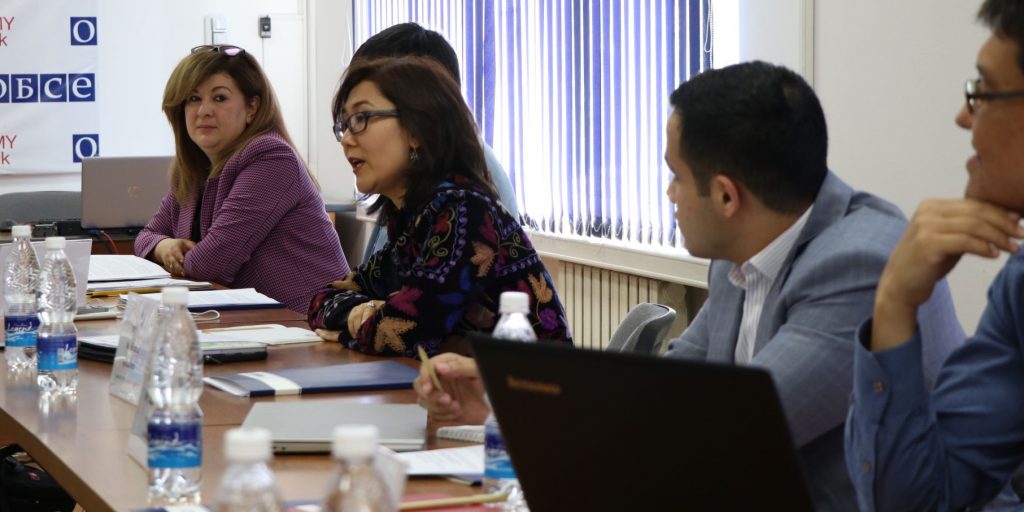2nd SPCE Hub Network Meeting


International Workshop
How to Promote Clean Energy Access in Rural Areas in Central Asia and Beyond?
26 April 2022, 9.30 AM – 5.30 PM (Break 1–2 PM)
Venue: Conference Hall, OSCE Academy Bishkek, Kyrgyzstan
Jointly implemented and co-funded by the SPCE Hub and the OSCE Academy in Bishkek in cooperation with the School of Intersectoral Governance at DHBW University, Germany
Goals of the Living Lab Project
The SPCE Hub, together with its partner institutions, is developing a grant proposal for EU funding to conduct living lab projects in the three partner countries (Kazakhstan, Kyrgyzstan and Uzbekistan) and to establish an EU–Central living lab and clean energy network.
Access to energy is an important prerequisite for rural development. For example, agriculture, nutrition and education are all particularly dependent on access to a reliable energy supply. However, currently there is a ‘real world’ issue with the unreliable availability of energy in Central Asian rural areas. At the same time, there is a need to transition to clean energy from traditional fossil fuel sources. This is essential for both individual and public health as well as for climate protection. Some Central Asian countries already invest in renewable energies, with a particular focus on large-scale power plants, such as Burnoye in Kazakhstan (50 MW) and a planned 200 MW plant in Nurata/Uzbekistan. However, due to the lack of grid connection, rural areas may not necessarily benefit from the modernization of the energy supply in the region. Especially in the context of renewable energies, off-grid solutions are therefore gaining increasing importance.
The goal of the living lab project is to produce a model for governments and donors detailing how to effectively promote off-grid clean energy access to increase human well-being, sustainable development and promote resilient societies.
As preparation, we have applied for funding for a study trip by Central Asian participants to visit energy transition Living Labs in Germany. In the framework of a Clean Energy and Living Lab Network, we will also offer various online expert workshops.
Goals of the Workshop
The main goal of the workshop is to bring together experts from industry, academia, NGOs and IOs from Kazakhstan, Kyrgyzstan and Uzbekistan as potential partners in the living lab project to discuss the scope and purpose of the project for promoting a reliable clean energy supply in rural areas in the three countries.
The aim of the workshop is for the participants to become familiar with the living lab method, and to discuss important aspects of (off-grid) clean energy access in Central Asia, so that all participants will be able to decide whether they are interested in participating in the network and in future projects.
We also intend to publish the results of the expert discussions in a conference report.
Depending on the interests and expertise of the participants, the discussion during the workshop may focus on the following aspects:
Technology: Participants will discuss the advantages and disadvantages of off-grid energy technology, both technology that is available and used and that not yet available but desirable in Central Asia.
Business models: The sustainability of off-grid energy systems depends on functioning and self-sustaining business models. Based on the input by a living lab expert, participants will discuss different approaches to off-grid energy projects from the perspectives of private and social economies.
Politics and state–business relations: Based on inputs by the participants, the sphere of regulation and taxes will be discussed. Participants will also exchange thoughts about what administrative support may be needed from national and local governments.
User-, prosumer and community-based approach: Clean Energy Living Labs prioritize the needs and capacities of communities, as users, consumers and prosumers. Communities in each country (small towns or villages with active citizens) will be involved in the research project at the earliest stage and will participate in the decision-making when it comes to the questions about which technologies and sustainable business models best fit their needs and capacities. During the workshop, participants will learn from previous projects and will draw conclusions for Central Asia. This approach highlights technology as the key to green and social transformations. However, technology is not viewed as neutral, and also needs to be analysed in terms of its impact on community resilience: Technology can have both positive and negative impacts on power structures, human well-being, the environment and thus the resilience of communities.
Agenda
09.30 – 11.00
Introduction
SPCE Hub, Living Labs
Goals of the Workshop
Forming working groups on
Technology, Business, Politics
11.00 – 11.15
Coffea Break
11.15 – 12.45
Discussions in Working Groups
13.00 – 14.00
Individual Lunch
14.00 – 15.30
Discussion of the workshop results
15.30 – 15.45
Coffea Break
15.45 – 17.30
Discussion of the workshop results
Input on Resilience
Wrap up, next steps
19.00
Dinner
